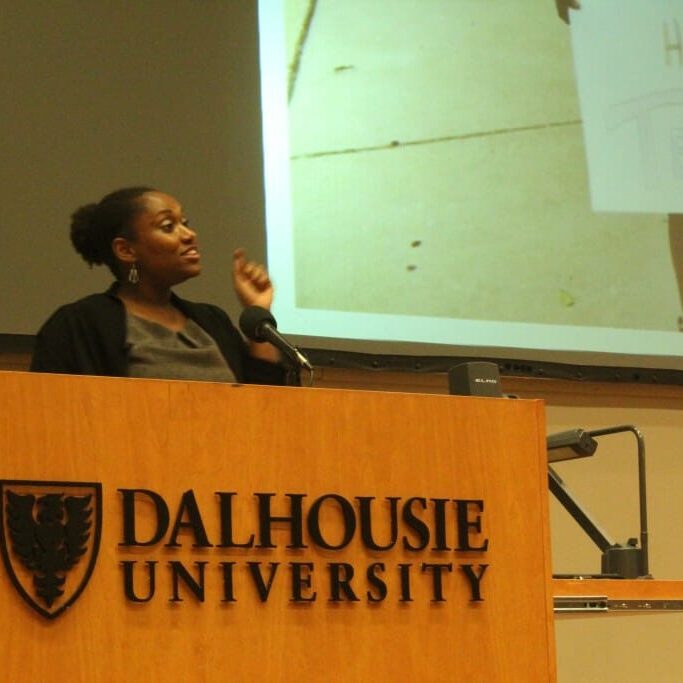
Bringing Ferguson to Halifax
Marcia Chatelain speaks at Dal about #BlackLivesMatter and the importance of social change
The Annual MacKay History Lecture included a modern twist this year, when Dr. Marcia Chatelain spoke in Dalhousie’s Potter Auditorium Wednesday evening.
Dr. Chatelain is a well-known historian, author, scholar and speaker, and is associate professor of history and African-American studies at Georgetown University in Washington.
The free lecture, called “Teaching in the Age of #BlackLivesMatter: Social Media, Social Justice, and Social Change in Classrooms and Communities,” focused on the effects of the events in Ferguson, Missouri last year and how to talk with young people about racism in our culture.
Chatelain has researched several aspects of African-American history, such as migration and women and girls’ history. Earlier this year, Chatelain also published South Side Girls, a book about urban black girlhood in 20th century Chicago.
“I’m here to talk about what I’d consider a year-long journey in my own professional career and as an educator,” Chatelain said shortly before going on stage, “Helping communities make sense around some of the problems we’ve been having in the United States around police violence, around accountability, around the ability of all Americans to feel safe in their homes”
In the weeks following the shooting death of Michael Brown in August 2014 Chatelain took to the online community, writing an article for The Atlantic about the importance of children learning about the events in Ferguson.
Chatelain then started the Twitter hashtag #FergusonSyllabus, as a way for educators to share ideas and resources. She hoped to dedicate the first day of classes to teach about the national crisis in Ferguson. This turned into a larger movement within the United States to use social media to crowd-source, and to publicly address issues surrounding race, policing and civil rights.
Chatelain answered crowd questions relating to the parallel experiences of Canadian and American racism.
“I found it very inspiring. Everything she talked about was so real for people of African descent,” said Dalhousie Sociology student Desiree Jones. “It’s good to make those connections with America and how our experience is so similar rather than so different, as it’s often portrayed.”
Chatelaine thinks everyone can offer something to the movement.
“Sometimes, we think that if we’re not the leader who’s leading the march, we’re not the lawyer who can get the protesters out of jail, we’re not the politician and can’t change policy, what do we do and where do we fit?” she says.
“My own experience as an educator has taught me that everyone has something to offer, and it’s our job to make sure kids have the tools that they need and the confidence to go out to do it.”
About 200 students, community members and professors attended Chatelain’s talk. The MacKay lecture series is composed of four talks each year on the liberal and performing arts, made possible by Gladys MacKay for husband, Rev. Malcolm Ross MacKay, who graduated Dalhousie with a B.A. in History in 1927.






